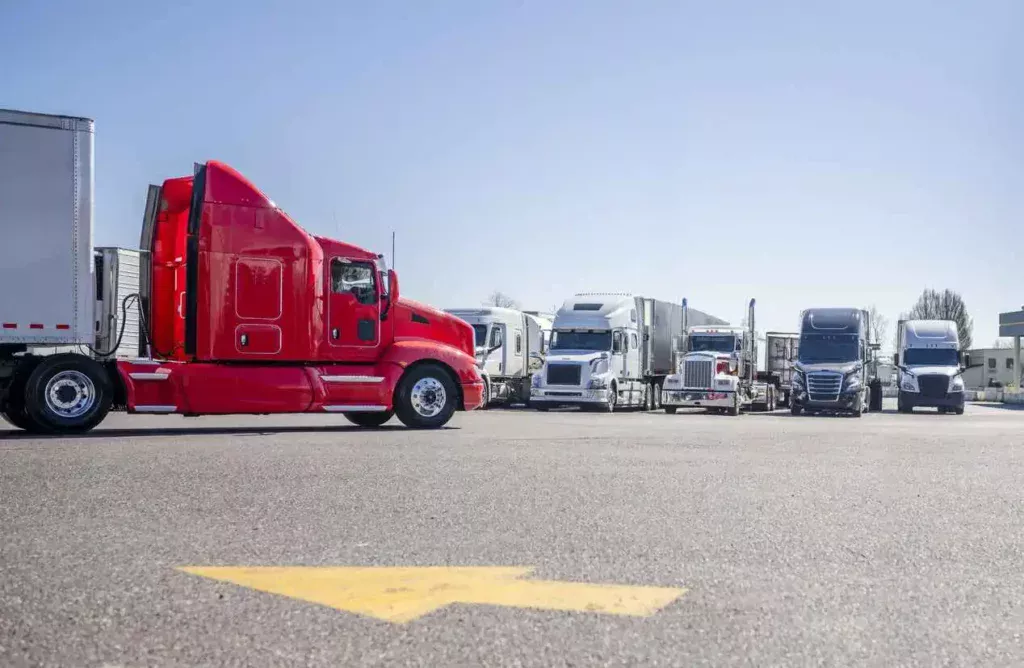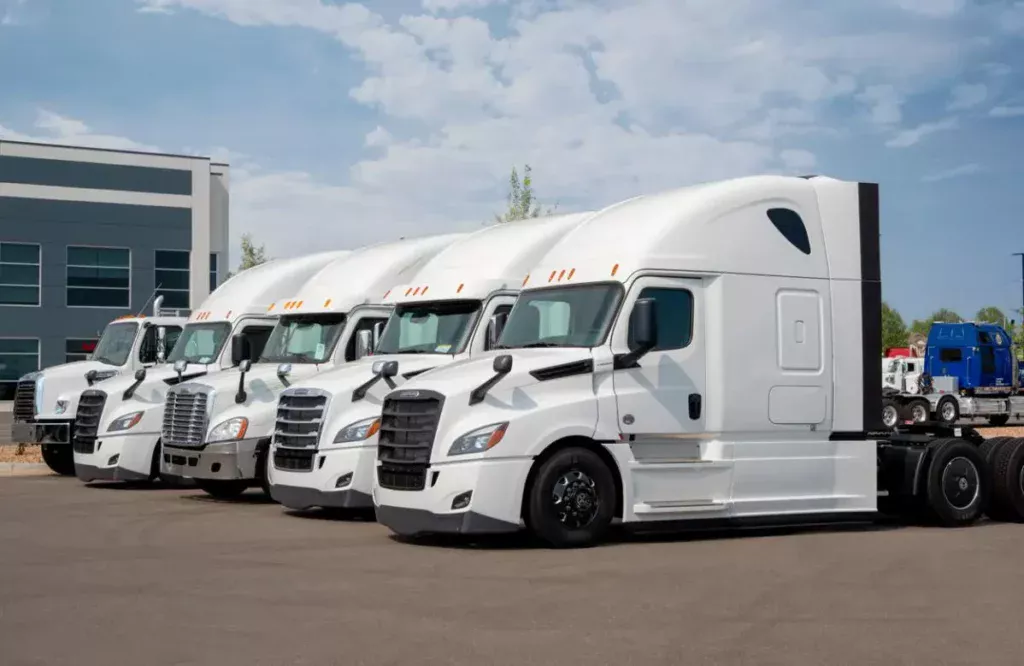If your fleet heavily relies on daily freight deliveries, the effective management of your truck fleet, including commercial truck fleet maintenance, can make the difference between your business thriving for the long haul or being left behind on the roadside. However, before you can implement a top-notch truck fleet management program, you need a strategic plan that positions your fleet for success, whether you have a small fleet size truck or a larger commercial vehicle fleet.
In this introductory guide to truck fleet management, we comprehensively cover all the fundamentals, offering valuable insights and best practices to drive your fleet forward, including truck fleet services. We also address common questions about fleet management and explore topics such as what is meant by fleet management and how many trucks is considered a fleet.
Defining Truck Fleet Management
At its core, truck fleet management in the freight industry encompasses the day-to-day oversight and operational activities of a collection of vehicles, whether it’s a small fleet or a larger one. In essence, fleet management involves coordinating and supervising all aspects of your vehicle fleet, regardless of its size. Whether your fleet comprises only a few vehicles or dozens of trucks, the term “fleet” pertains to the group of vehicles your company utilizes for the safe and timely transportation of goods. The fleet manager assumes ultimate responsibility for the maintenance and operation of these vehicles.
Fleets can consist of various vehicle types, including vans, pickup trucks, and cars. Common types of fleets include delivery, commercial, transport, and trucking fleets, but there are many other variations. Companies offering services like maintenance, laundry delivery, flower delivery, appliance transportation, or food and beverage delivery often operate fleets, even if they may not explicitly define themselves as such.
What is considered a fleet? To clarify, consider a local roofing company that recently added a sixth van to its lineup—this qualifies as a fleet. Similarly, a regional winery that operates eighteen trucks and several additional vehicles across the state also constitutes a fleet.
Given the substantial costs associated with fleet management, it’s no surprise that effective truck fleet management can lead to cost reductions of 17% to 22% compared to alternative outsourcing options. This substantial saving is achieved by efficiently managing various core functions, including asset management, fuel management, insurance, maintenance, route planning and optimization, safety and accident management, upfitting, vehicle purchase and licensing, and vehicle disposal.
You might wonder how much fleet owners can earn per truck or overall. On average, gross earnings per truck can range from $4,000 to $10,000, allowing owner-operators who oversee their fleet’s operations to take home around $2,000 to $5,000 per week. Keep in mind that these figures can vary due to factors such as mileage, driver efficiency, maintenance costs, seasonal fluctuations, and market conditions. In general, owning and managing a fleet can be a profitable endeavor.

The Significance of Truck Fleet Management
Proactive truck fleet management is essential for the long-term success of any fleet, whether it’s a small fleet management or a larger commercial vehicle fleet. Effective fleet management is centered on aligning drivers, vehicles, and the company’s overall mission to achieve critical business objectives.
The benefits of top-tier fleet management are significant and can impact various core aspects of the business, including delivery fleet management. It can stimulate growth, optimize operational efficiency, control costs, reduce accidents, and impact various core aspects of the business.
Key Elements of Truck Fleet Management
Truck fleet management comprises multiple essential components, with some standing out as particularly critical, such as truck maintenance, compliance, and safety. The most successful truck fleets prioritize safety and regular vehicle maintenance, including commercial truck fleet maintenance. Scheduled maintenance is crucial to preventing unscheduled breakdowns and downtime.
Vehicle Management: This starts with vehicle acquisition. Efficient procurement strategies, including discounts and fleet programs from automakers, can save your fleet money. Fleet managers also oversee vehicle titles, licensing, and insurance to ensure all vehicles remain active and up-to-date.
Asset Management & Fuel Management: Proactive management of assets and monitoring fuel costs and consumption are central to cost savings. Analyzing whether investing in new vehicles outweighs maintenance and fuel savings is key.
Upfitting Requirements for Trucks: Some businesses require specialty vehicles for niche operations, necessitating upfitting. Fleet managers must plan for efficient and timely upfitting to avoid delays in vehicle deployment.
Truck Disposal and Resale: Disposing of vehicles at the end of their lifecycle is often overlooked. Fleet managers need to manage the sale process efficiently to maximize the value of each vehicle.
Efficient, Optimized Route Planning: Optimized routes and real-time tracking technology help reduce fuel costs, increase efficiency, and enhance customer satisfaction.

How to Manage a Fleet of Trucks
To effectively manage a fleet of trucks and take it to the next level, consider the following best practices, whether you have a small fleet or a larger commercial truck fleet companies:
- Hire a Full-Time Fleet Manager: Look for an organized, knowledgeable, and passionate fleet manager who can oversee the various elements of fleet management. You can start with a part-time manager before hiring a full-time one to manage costs.
- Partner with a Fleet Management Provider: Consider outsourcing some operational duties to fleet management companies, particularly for large fleets. This can save time and drive profitability.
- Develop Your Drivers: Invest in driver training and certifications to empower your drivers and enhance fleet performance. Establish safety standards and best practices to eliminate downtime.
- Establish Clear Communication: Maintain open lines of communication with drivers and stakeholders to ensure safe, effective, and timely operations.
- Leverage Technology: Utilize advanced technology systems and platforms to optimize fleet operations, increase efficiency, and drive long-term success.
How Logity Dispatch can help you?
Logity Dispatch empowers you to align drivers, vehicles, and your company’s mission to achieve critical business objectives. The significant cost savings, improved safety, optimized operations, and growth potential provided by Logity Dispatch can make the difference between a thriving and competitive fleet and being left behind on the roadside. Contact us today and steer your fleet towards long-term success and profitability.







